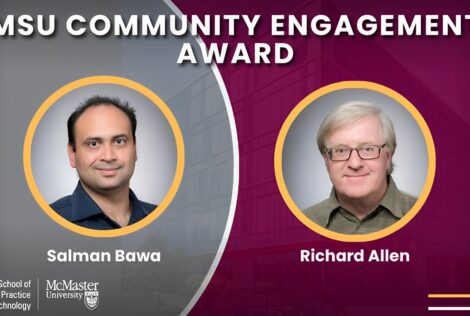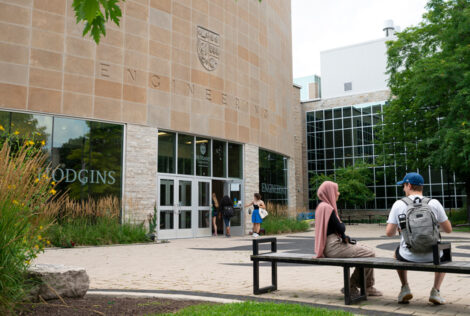
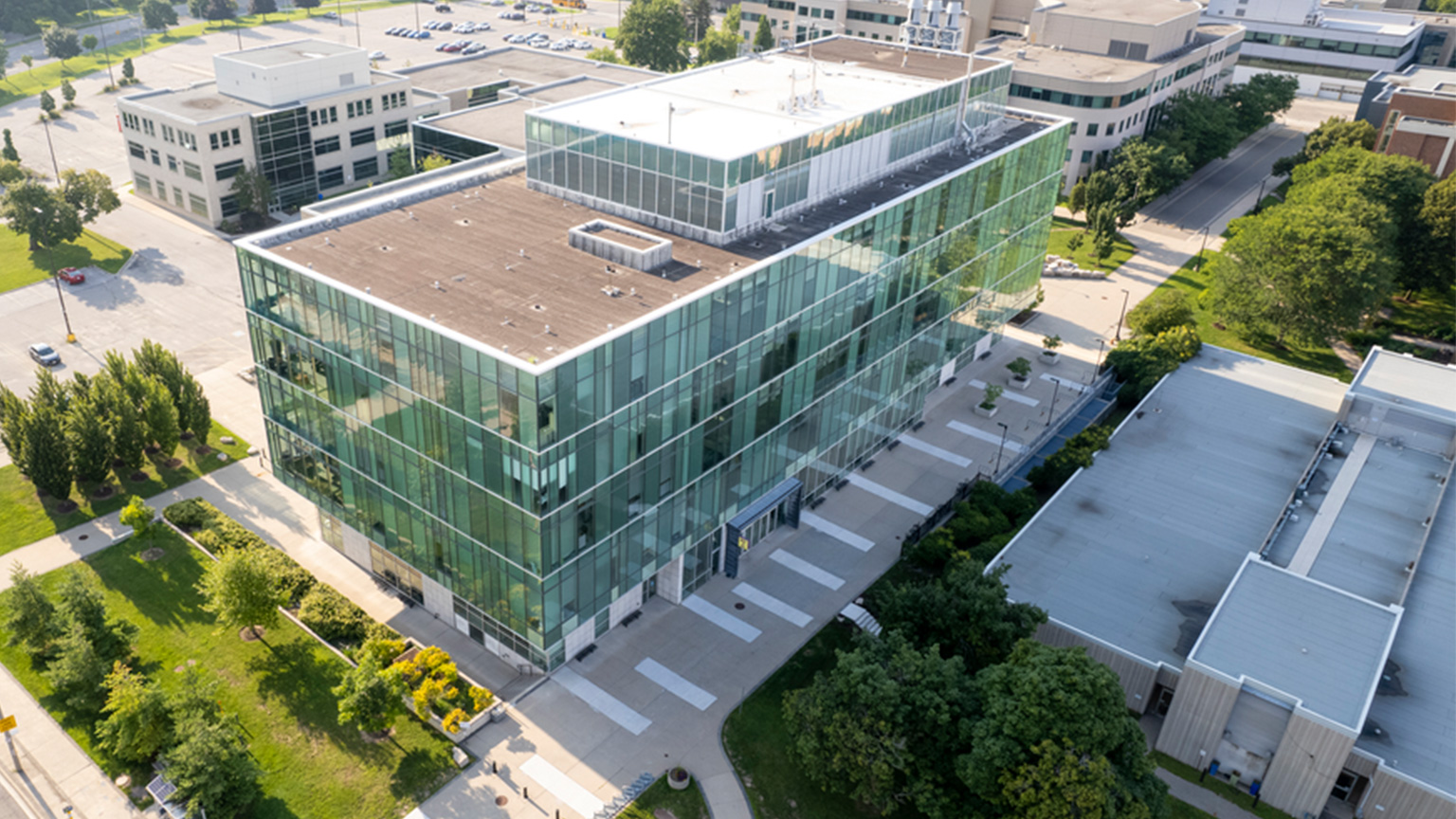
When students apply to graduate programs, they’re faced with a staggering number to select from. Nevertheless, Gussai Sheikheldin narrowed his choices down to only two programs.
It was 2006 and he had recently graduated from Minnesota State University with an engineering technology degree and gained permanent residency in Canada, his family having recently settled in Mississauga. He applied to the Engineering and Public Policy program with the W. Booth School of Engineering Practice and Technology, and a Master of Industrial Engineering at University of Windsor.
He chose McMaster.
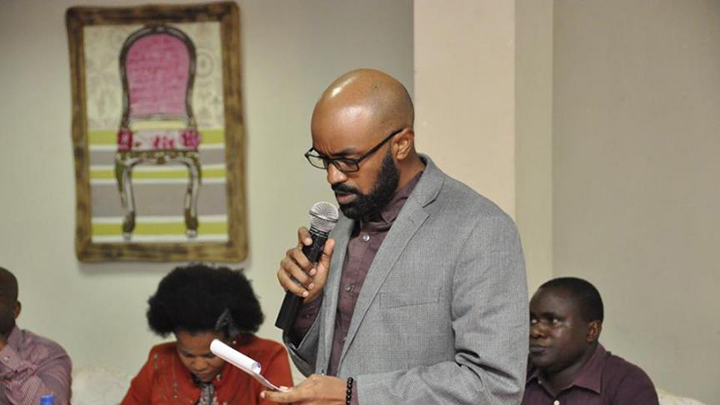
After speaking with him, it’s safe to say he sees it as the best choice he could have made. “Completing my Master’s of Engineering and Public Policy was the most significant year of my academic journey,” says Sheikheldin. “It allowed me to take my technical education and build a foundation for what I’ve since gone on to do.”
His accomplishments include the Government of Canada sponsored Science Horizons Internship, where he wrote a paper that continues to be cited; he completed a Ph.D. at Guelph University, in which he studied technological change in rural Africa; and authoring a book on the importance of technological autonomy in developing nations, titled “Liberation and Technology: Development possibilities in pursuing technological autonomy.”
Currently, he’s a research fellow with the Science, Technology and Innovation Policy Research Organization (STIPRO) think-tank in Tanzania. His most recent project is working with stakeholders in East Africa to transform engineering education systems. The objective is to make engineering graduates more employable nationally and internationally. By learning from engineering education models from across the world and adapting them to the East African context, he’s building support throughout the region by proposing this new model to universities, industry and government.
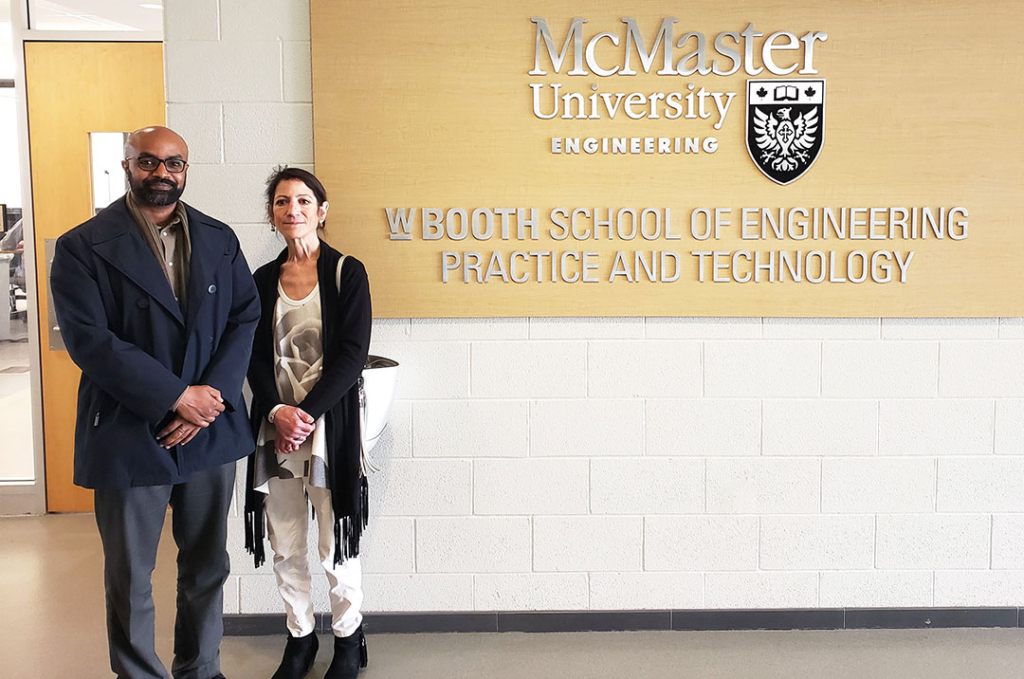
Gail Krantzberg, Professor of Engineering and Public Policy, believes in the need for interdisciplinary programs to produce exceptional leaders like Shiekheldin. “I am thrilled to see students come into the program with engineering- or science-based problem-solving skills and leave totally transformed. They gain a deep understanding of how to leverage their passion for technical systems within a broader governance system.”
Sheikheldin gives a lot of credit to the interdisciplinary nature of the Master of Engineering and Public Policy program, stating that the program takes your engineering background and feeds it, adding something that isn’t commonly associated with engineering. “It’s a critical gap that few programs address, and the W. Booth School at McMaster addresses it well.”
Soft-spoken and intentional with his words, Sheikheldin said, “I’m fulfilled where I am, working in the intersection between policy and scholarship. I don’t think I’d have been as successful working in a setting that wasn’t interdisciplinary.”
If you’re considering graduate studies and have a desire to be an agent for positive change in the world, the Master of Engineering and Public Policy is for you. Find out more at McMaster University’s W Booth School of Engineering Practice and Technology.

